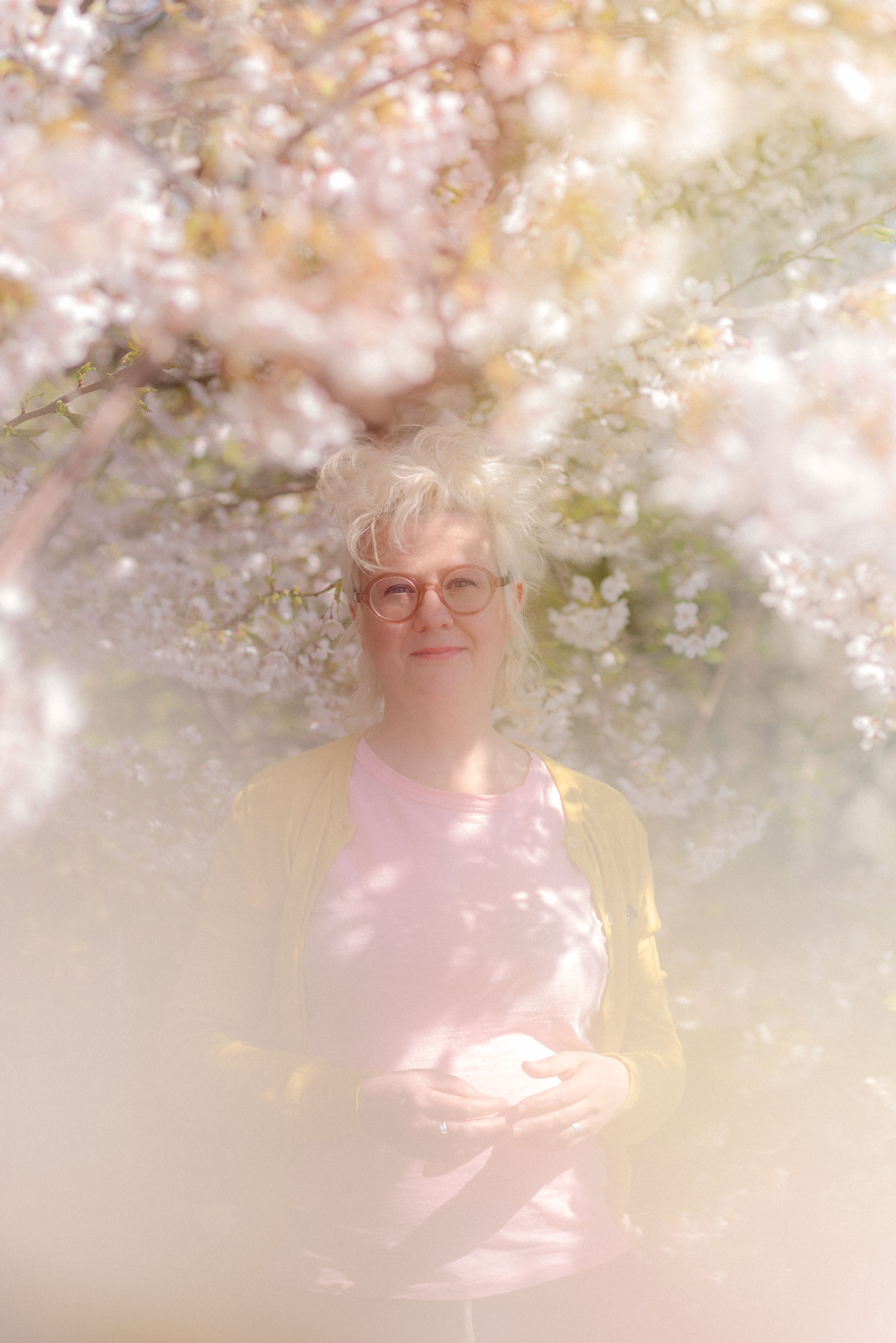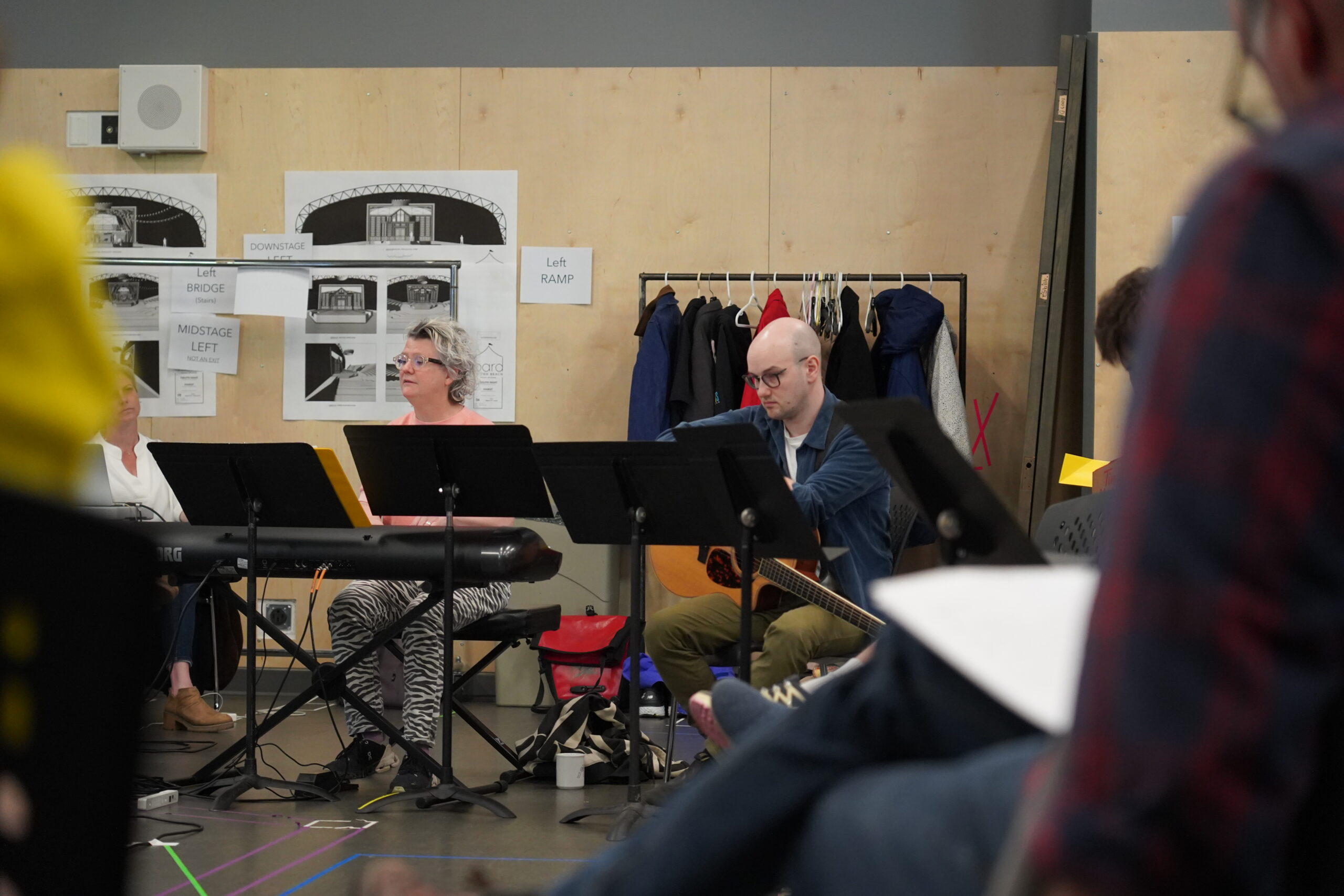Do you already have your ticket for the carnival this summer?
Our first performances of Twelfth Night begin next week, and we can’t wait to see you under the tents again! To help usher in the festivities, we spoke with Twelfth Night composer Veda Hille, whose original compositions will transport us to Illyria and set the stage for all the poetry (and chaos) to come.

How has your first Bard experience been so far?
It has been a thrill to make music for Twelfth Night and to have this chance to partner with Shakespeare’s language. I find working with these texts very satisfying: they’re such a strong anchor. And now that we’re in rehearsal I’m just loving being at the site. The light, the air, the actors running around in their fantastical costumes; the romance of theatre is still alive for me, down at Vanier Park. Plus last week I saw a coyote eating a goose. It doesn’t get wilder than this.
You’ve been working as a musician, composer, theatre maker, and performer for three decades now. What first drew you to music and this line of work?
When I was very young I was clear that I wanted to play music. I am very grateful to that long ago kid who insisted, and practiced. It was always a language that I was drawn to. I also loved theatre in high school, but music was the first thing that held my attention. I didn’t think much about working in music though, until I started writing songs when I was at art school in the late 80s. And so I got a bunch of songs together, and made a little cassette, and somewhere in there I realized that I’d made a commitment.
I started in folk and indie rock music, writing personal songs and touring and making records. I also played music for dance classes as a side gig, and then that led into composing for dance. I really wanted to be a rock star, but I kept being interested in other assignments: songs about plants, songs for theatre, songs for films and special occasions. And so now I have this weird set of skills and desires in music; I’m quite happy with how those wandering interests have ended up supporting me and holding me fast.
In your note for the House Program, you talk about having circled Shakespeare’s work for a few years now. What was it about Shakespeare and Twelfth Night in particular that interested you?
Diana came to me with the offer and her ideas about what the play was about. I was intrigued, and glad that she was attempting to deal with some of the antique views on gender that are inherent in the play. When I realized that this was the one that opened with “If music be the food of love” I was drawn in further, but I think the real clincher was when I read the words to the final song, “The Wind and The Rain.” I immediately and desperately wanted to write that song. And then I was in.
You mention that some of your musical inspirations included the late singer-songwriter Shane McGowan, German counter-tenor Klaus Nomi, and even your own earlier music subverting traditional folk forms. What was it about these works that felt like a fit for the story and themes in Twelfth Night?
Diana originally pitched using my own existing songs for the music, so it was clear that she wanted my style of thing. But once I read the play again I was moved to write new songs. It was nice to feel like I didn’t need to reinvent myself though. And when Shane died, I was of course thinking about him and the great drive of The Pogues. It seemed like the show wanted some of that punk energy, and Shakespeare’s lyrics of course are rooted in an English folk style, which is kin to those rhythms. As for Klaus, I love that marriage of new wave and opera. There’s just a hint of it in this show, but I’m always trying.
In addition to setting music to Shakespeare’s lyrics, you also wrote some original songs for the production. How did you approach the process of writing these songs?
We wanted an opening song that kind of set the scene and let the audience know what they were in for. A pronouncement of thesis: giving yourself over to love, seizing the day, stepping beyond the comfortable. Diana gave me the brief, and I did my best to write a banger of a number. And then there were a few other moments in the play that Shakespeare had not written as song lyrics, but I was really moved by them and wanted to make them musical. Old William often takes his time with a discovery, you know? Having the actors sing some of these discoveries makes it more believable for me; it’s not realism, so we can let the music heighten the moment.

Veda with Anton Lipovetsky at the Twelfth Night First Read playing through some of the production’s music.
Do you have a favourite moment or memory from this process?
I am the composer on this project, not the music director, so I got to hand everything over to Anton Lipovetsky and leave the final shape of the music up to him. I was out of town during some of the rehearsal. I got to come home and watch a run and experience what Anton and the incredible cast had been up to: absolutely thrilling. Goosebumps!
When you aren’t writing music, what do you like to get up to?
I’m pretty excited about my garden these days. I’m learning about growing dahlias and raspberries, very practical. I also love to cook.
Do you have any upcoming projects that you’d like to share with us?
There’s lots going on, as always, but I have a very special show at the Cultch on September 14 and 15 this year. The group Veda Hille Sisterhood will play, alongside my friends/husband in the band p:ano. They’ve re-formed after a 17-year break with a great new record. It’s going to be sweet.
Huge thanks to Veda for chatting with us today—and for helping to bring this fantastical, joyous world to life with your artistry.
Be sure to hear Veda’s music in Twelfth Night, running June 11 to September 21 on the BMO Mainstage. Buy your tickets now by visiting our Season Schedule! Plus, if you want to get ready for your visit (or revel in the magic a little longer), you can stream Veda’s original song for Twelfth Night, “Illyria,” on Apple Music and Spotify.

